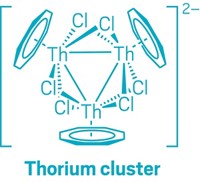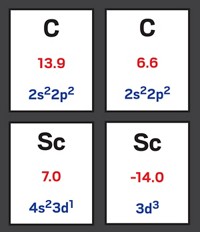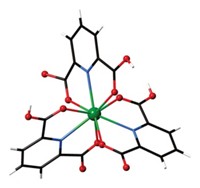Advertisement
Grab your lab coat. Let's get started
Welcome!
Welcome!
Create an account below to get 6 C&EN articles per month, receive newsletters and more - all free.
It seems this is your first time logging in online. Please enter the following information to continue.
As an ACS member you automatically get access to this site. All we need is few more details to create your reading experience.
Not you? Sign in with a different account.
Not you? Sign in with a different account.
ERROR 1
ERROR 1
ERROR 2
ERROR 2
ERROR 2
ERROR 2
ERROR 2
Password and Confirm password must match.
If you have an ACS member number, please enter it here so we can link this account to your membership. (optional)
ERROR 2
ACS values your privacy. By submitting your information, you are gaining access to C&EN and subscribing to our weekly newsletter. We use the information you provide to make your reading experience better, and we will never sell your data to third party members.
Physical Chemistry
Plutonium’s Shifty Ground States
Actinide Chemistry: Element fluctuates among three electronic ground states, yielding unique magnetism and solid-phase properties
by Jyllian Kemsley
July 13, 2015
| A version of this story appeared in
Volume 93, Issue 28
Plutonium is arguably the most complex element in the periodic table. Early actinides behave like transition metals, and late actinides behave like lanthanides. But plutonium bridges the two, with physical properties reflective of both groups. A source of plutonium’s curious and complex properties, at least for one of its six solid phases, is a superposition of electronic ground states, according to a neutron scattering study led by Marc Janoschek of Los Alamos National Laboratory (Sci. Adv. 2015, DOI: 10.1126/sciadv.1500188). To understand the basis of plutonium’s properties, Janoschek and coworkers studied the δ phase of plutonium at ambient temperature and pressure. Confirming prior theoretical work, they found that δ-Pu fluctuates among 5f6, 5f5, and 5f4 states by delocalizing one or two valence electrons into the conduction band. The states have lifetimes of about 0.015 picoseconds. The results explain why plutonium’s expected magnetism hasn’t been observed experimentally: The 5f4 and 5f5 states are magnetic, but 5f6 is nonmagnetic. Also, the various states yield different ion sizes that contribute to plutonium’s large volume changes—as much as 25%—in response to small temperature shifts.





Join the conversation
Contact the reporter
Submit a Letter to the Editor for publication
Engage with us on Twitter